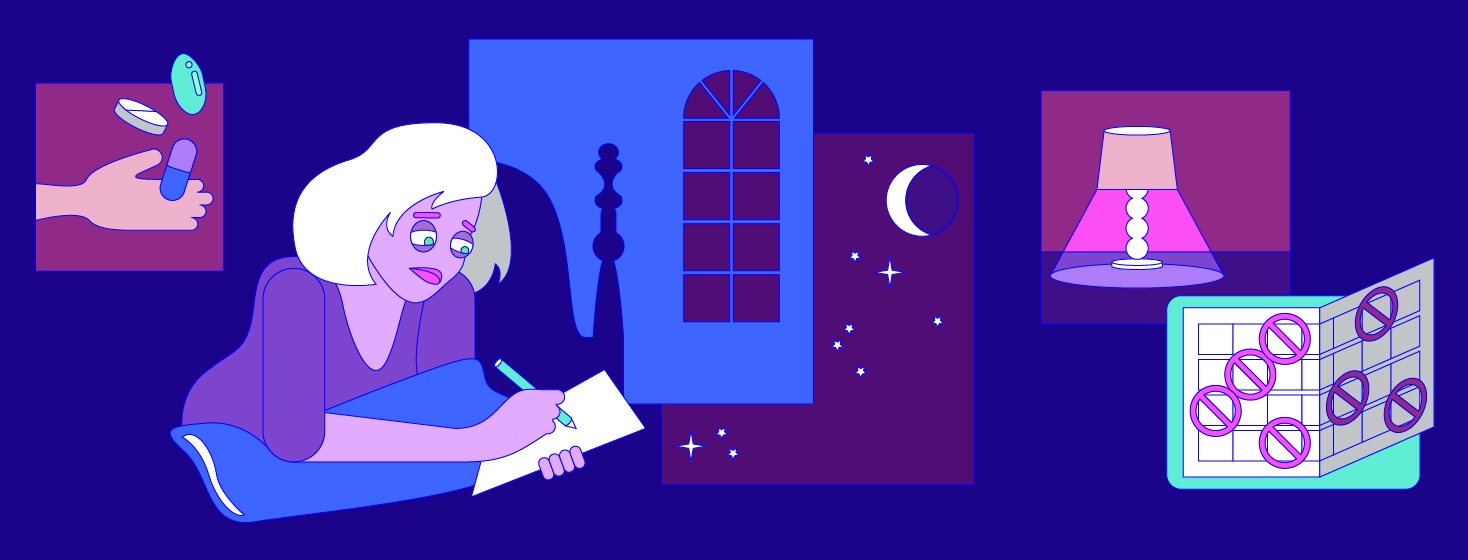Sleepless Nights and Hep C
Insomnia, or troubles sleeping, is something we have all experienced at one point in our lives. Job demands, societal pressures, monetary stress, and family responsibilities are examples of external factors that can affect sleep. For people with hep C, sleep disturbances are relatively common; However, it is rarely discussed. In fact, 60-65% of people with hep C report issues with sleep.1 What is the association between Hep C and poor sleep, and what are the consequences of sleep deprivation?
The association between insomnia and hep C
The link between insomnia and hep C is not well understood; However, there seems to be a correlation with the severity of fatigue. That is, people with sleep issues are more likely to also have symptoms of severe fatigue.1
We also know that there is a link between depression and insomnia, and that the prevalence of depression is higher in people hep C. Despite this, one study found that the sleep disturbances experienced in hep C are independent of other mood disorders, such as depression.1
On the other hand, in people with cirrhosis, insomnia is well-researched as it is linked to a condition affecting the brain, known as hepatic encephalopathy.1
Sleep statistics
It has been commonly cited that adults need 6-8 hours of sleep, with others needing a bit more.2 However, in the US, one in three adults report getting less than 7 hours of sleep during the weekdays. In addition, certain ethnicities are less likely to get adequate sleep: for example, African Americans, Hispanic Americans, and native Hawaiians.3
How important is sleep?
The importance of sleep is well-documented. Sleep disturbances have been linked to the following effects:
- Mental – Logical reasoning, focus, work performance, and time to response can all be affected.4
- Breathing – Studies suggest that lack of adequate sleep can impact breathing, leading to hypoventilation.5
- Mood – Sleep deprivation can lead to mood changes mimicking that of anxiety and depression. People report low mood, and irritability; however, unlike depression and anxiety, symptoms improve with restful sleep.6
- Heart health – Sleep deprivation for long duration of time is associated with negative impacts on the heart. This is because chronic sleep deficiency can result in an increased risk of obesity, high blood pressure, and abnormal sugar and cholesterol levels, which all lead to poor health outcomes.7
- Immunity – Poor sleep can also suppress the immune system, making the body more vulnerable to infections.8
Improving sleep
There are many lifestyle changes that can be implemented to improve sleep. Keeping a sleep diary can help assess patterns and help a healthy sleep hygiene plan. However, lifestyle measures may not always work. For some people, a trial of sleep medications may be warranted. Always ask your doctor or pharmacist before selecting over-the-counter sleep medications. Additionally, referral to a specialist, such as a sleep cognitive behavioral therapist, may be a good option for others.
Have you experienced sleep disturbances since your hep C diagnosis? What are some of your sleep hygiene tips? Share your experiences below!

Join the conversation